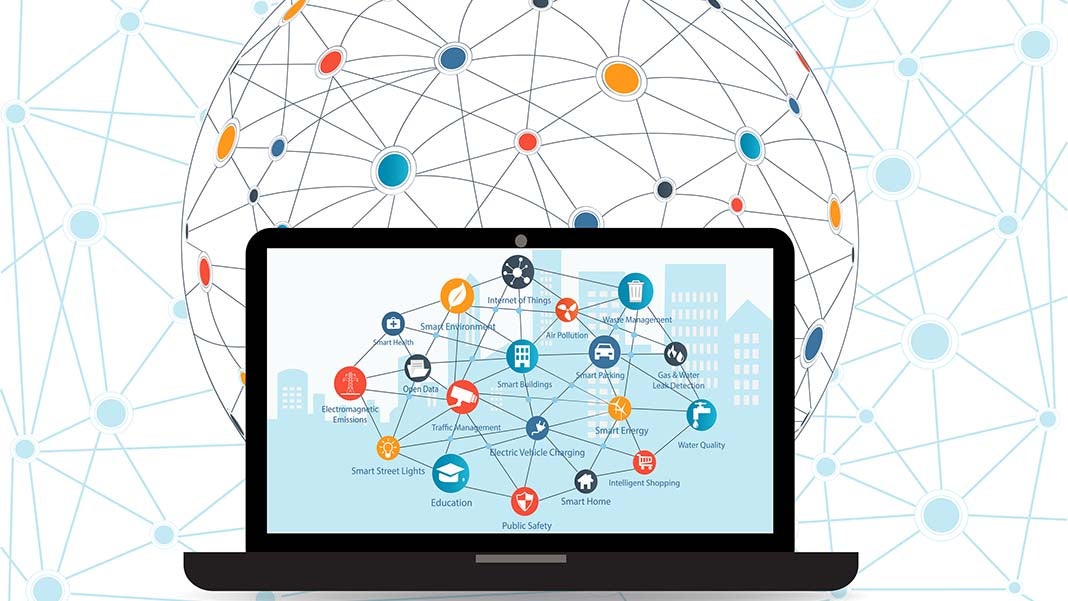
Sound leadership might be defined as the quality associated with being able to navigate a group of people through a complex set of challenges. In 2020, with much of the world experiencing an unprecedented upheaval as a result of the Covid-19 outbreak; current circumstances have separated the wheat from the chaff when it comes to this quality.
Many of the challenges that have arisen from the ongoing pandemic in today’s professional world centre around the internet. Taken together, the surge in demand for video call technologies, pressures placed on bandwidth, and home office distractions all serve to underscore the importance of the digital world in today’s economy. And with such changes, the ability to navigate the new set of challenges that come along with such an environment, therefore, provide in equal measure the opportunity to demonstrate sound leadership.
For many years, such a transformation had already been within the sights of mortgage tycoon William Erbey, who was concerned about the negative economic impact that internet exclusion might have. After all, the digital transformation that brought the world toward the internet was well on its way before Covid-19. The pandemic merely served to speed it up considerably.
Over the last decade, Erbey—a keen investor in the technology industry—recognized the immense changes that the internet could facilitate. He also recognized that until the interconnectivity engendered by the internet could be assured to people across the globe, there would remain considerable challenges standing in the way of economic growth and prosperity.
In this way, Erbey foresaw that one of the largest challenges facing the omnipresence of internet technology was congestion and identified solutions in new ways of connecting hubs and nodes to one another.
This served as the primary motivation for his tech-focused investment strategy. Erbey went on to invest in System 73, a technology company providing multi content distribution network (CDN) solutions, allowing proxy servers and their data centers to be situated across the world. System 73 also played a leading role in developing Kuno Stream, an AI-augmented, tree-based, peer-to-peer network that is built to drastically enhance the quality and capacity of video streaming.
In November 2019, for example, Erbey told Asia Times “This is particularly true in forecasting congestion on the Internet. Capturing billions of data points every millisecond is not only impractical but also non-productive. Most of the data has a negative value in that using it will lead to incorrect conclusions. Excellent analytics, not just capturing data, however, are invaluable,” Erbey added.
Collecting data, however, posed risks of its own. With internet companies holding increasingly greater sway over the lives of their users, concerns naturally turned to privacy.
This too became a focus of Erbey’s. When asked in an IMC Grupo interview about his thoughts on the appropriate intersection between essential data analysis and privacy, Erbey responded by pointing out that user privacy ought to be strongly safeguarded.
“I am not one who would generally favor heavy regulation outside of health and safety,” he explained. “Data, however, is power and unfortunately that power is extremely concentrated globally in the hands of a few tech companies. Individuals are at a severe disadvantage in protecting and defending themselves and thus regulation becomes necessary.”
The two challenges to digital growth, congestion and privacy, are grounded in data. According to the World Economic Forum and tech giant Cisco, among others, varying degrees of internet penetration across the world, an ever-rising demand for bandwidth and a growing rate of cyber criminality combine to present the largest challenges to the development of the internet.
And today, with the surging trend toward home office work, such challenges stand as relevant as they have been at any point in the past.
As a consequence, efforts to create an environment in which access to the internet is more globally distributed, privacy is sanctified and congestion is kept at a minimum would have far-reaching implications on how remote teams can be organized, mobilized and led.
Creating a better internet, therefore, is the key to laying out a bold, new path for the digital leaders of tomorrow.
2579 Views












